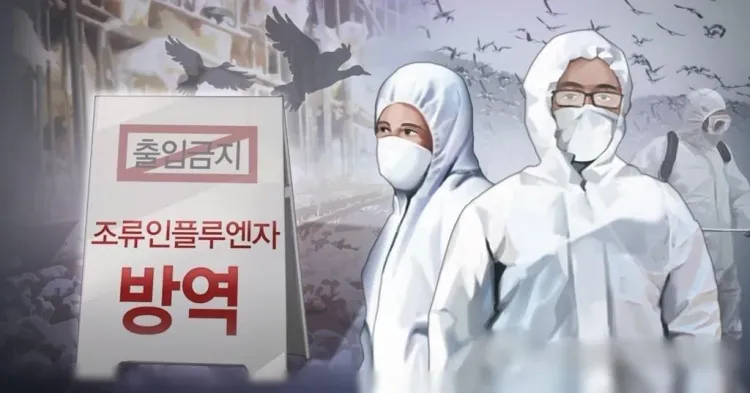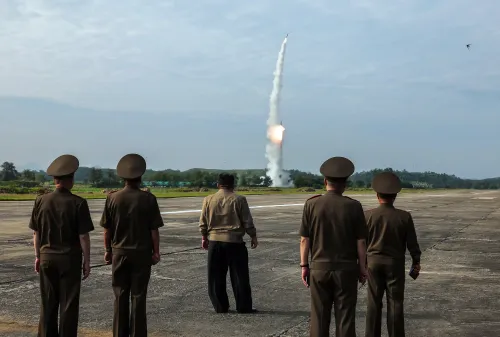Has South Korea Stopped Imports of Brazilian Poultry Due to Bird Flu?

Synopsis
Key Takeaways
- South Korea has suspended poultry imports from Brazil due to HPAI.
- The ban includes hatching eggs and day-old chicks.
- Brazil is the world's largest chicken exporter.
- There are currently 37 shipments of Brazilian chicken awaiting clearance in South Korea.
- Public health measures are being prioritized amid ongoing bird flu cases in South Korea.
Seoul, May 17 (NationPress) South Korea has halted the importation of poultry and related goods from Brazil following a confirmed outbreak of highly pathogenic avian influenza (HPAI) at a commercial farm, as stated by the Ministry of Agriculture, Food and Rural Affairs on Saturday.
The ministry's decision comes in response to Brazil's official notification to the World Organisation for Animal Health, confirming an HPAI outbreak at a breeder farm located in the southern Brazilian state of Rio Grande do Sul on Friday (local time), according to a report by Yonhap news agency.
Effective from May 15, the suspension includes Brazilian poultry products such as hatching eggs and day-old chicks.
Shipments that left Brazil within the 14 days prior to the ban will be subjected to HPAI testing upon arrival in South Korea.
This event marks the first detection of HPAI at a commercial poultry operation in Brazil, even though it was initially reported in wild birds back in May 2023.
Brazil holds the title of the world’s largest chicken exporter.
At present, there are 37 shipments, amounting to 844 tonnes of Brazilian chicken meat, awaiting quarantine clearance at South Korean ports.
Considering the shipment timelines and the virus's incubation period, the ministry reassured that there is no immediate risk of contamination, stating that the products will be processed through standard quarantine measures.
Simultaneously, South Korea has recorded 46 instances of highly pathogenic avian influenza this season, with the first outbreak reported on October 29.
Since late October, approximately 1.8 percent of the 77.6 million chickens across poultry farms in the country have been culled due to bird flu, according to the ministry.
Recently, the highly pathogenic bird flu virus has led to mass deaths among chickens and wild birds globally. The virus has also spread to seals, cats, cattle, and even transitioned from cattle to humans, raising alarms about the potential for a future pandemic virus.









